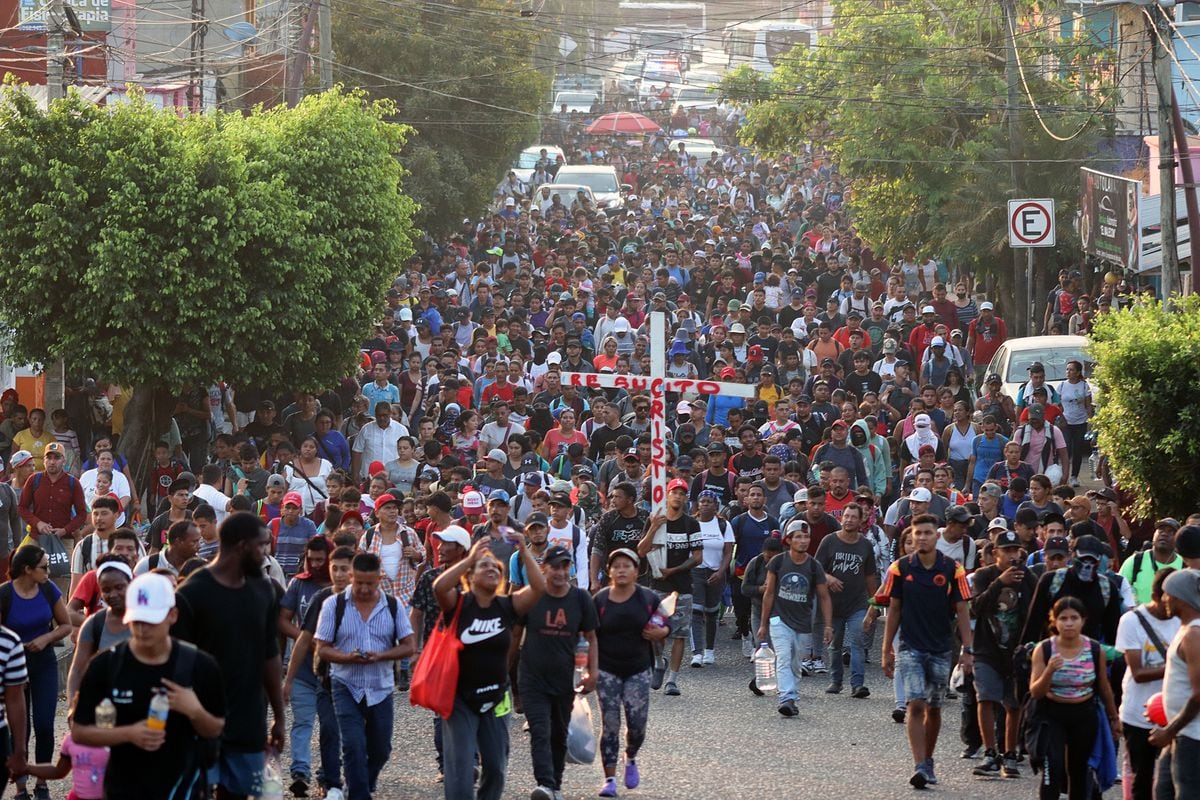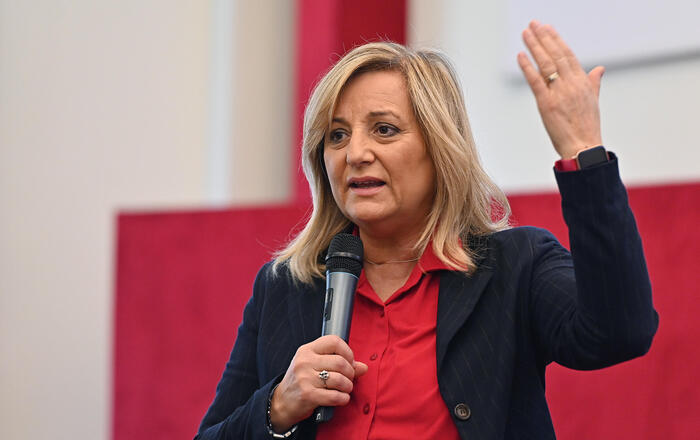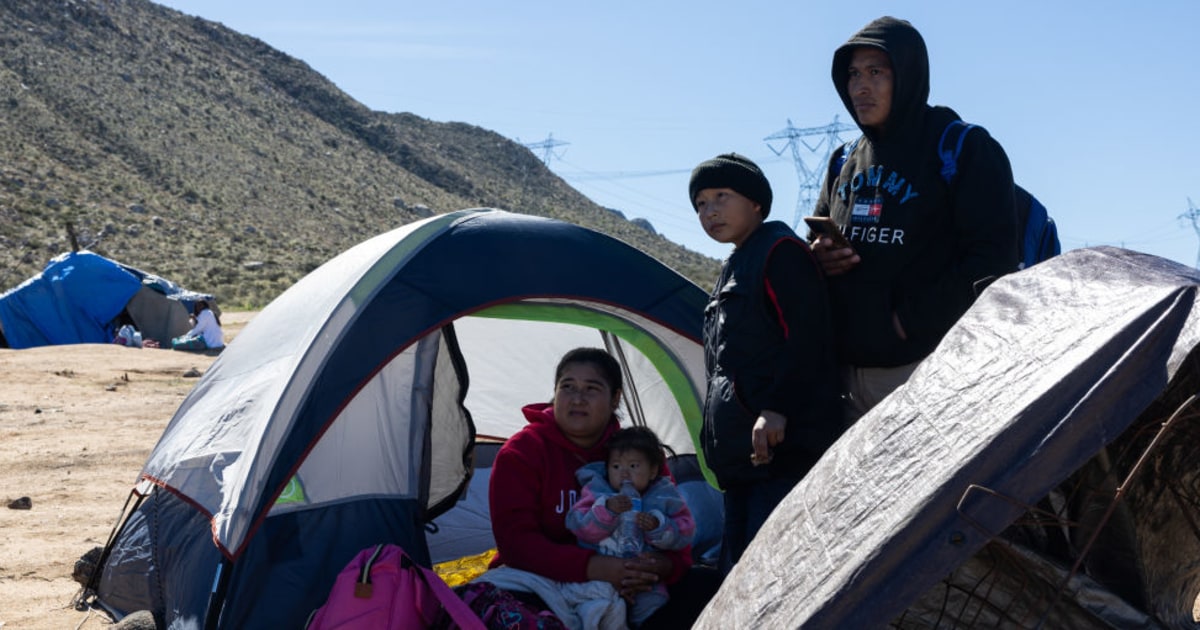"I had been thinking for some time that the only way to change the situation of migrants is to participate in politics because laws are made in Parliament," says Boutaina El Hadri, manager of the Valencian NGO Jovesólides, which has always been involved in social movements and has settled in Valencia for more than two decades.
After years on the ground, she wondered why there is so little migrant representation in Spanish legislative bodies and concluded: “We are not here because we think it is difficult to get there and also because the political parties do not see us.
And when they do, they perceive us more as a problem than a solution."
Changing the inertia was important and in 2019, together with two other Valencian organizations from the third sector,
quarry.
Satisfied with the project, financed with funds from the Valencian Generalitat, the manager has investigated and has not found another similar initiative in Spain.
As she herself explains, El Hadri has participated in many associative movements, in rallies and demonstrations in defense of these groups, and the feeling is that the situation of the migrant population has not changed, it costs a lot;
meanwhile, hate speech grows.
“We launched the school with two objectives: to form a quarry because the preparation of migrants has changed radically.
There are still newcomers looking for the basics: documentation, employment and roots;
but there are others who have a normalized life and what they need is to be able to comment, decide and elect the mayor of their city”, explains this activist.
An important pillar of the school is precisely to open the doors of political parties to the needs of migrants and for this they have invited their organic positions, deputies or councilors to give talks.
The students have been able to ask them why there is so little migrant representation in Valencian public institutions and how they could access them and their organizations.
They have also sat them down —all except Vox— to discuss their migration policies and have drawn up a list of 15 demands that they will present at the end of January at a large public event.
In the last edition of the school they extended the invitation to politicians of migrant origin so that the students could see that it is difficult, but not impossible, and there are people who have taken the step.
The school has three editions and 150 people have passed through the classroom.
In the Valencian Community, after eight years of government of the Botànic, there is only one deputy of migrant origin, Irene Gómez, born in Peru, from Podemos.
“Political parties have to make self-criticism, above all, the formations of the left, with a more open discourse and in favor of diversity”, she states.
The politicians have promised to incorporate the demands of the collective (improvements in rents, employment and health, among others) in their electoral programs, and also to take into account the incorporation of migrants in the candidacies for the 28-M or in government responsibilities .
“The school has done a brutal job and I know that many parties have had an internal debate on this issue and are seeing how to move forward.
January 15 [today Sunday] is the deadline for migrants whose countries of origin have agreements with Spain to register and vote in the municipal elections in May.
There are more than 50,000 people with NIEs in the Valencian Community, according to the manager of Jovesólides, but she calculates that there are some 200,000 people of migrant origin who could exercise the right to vote if the nationalized are added.
“I think there are a lot of votes and I have been pleasantly surprised that parties like Podem, PSPV, Compromís or the PP have launched campaigns to encourage voting among migrants,” she explains.
Rahma El Basraoui, a 52-year-old volunteer of Moroccan origin and a Spanish national for two years, came 20 years ago to study;
she had a degree in International Law and did her doctorate in Valencia.
“From the first day we make efforts to integrate.
We have chosen to come to live here, to study and work, and we learn the language, interact with people and get to know a new culture.
We know that it is an obligation for us but, sometimes, the other party does not feel the need to make an effort, get closer and get to know us more ”, she underlines.
The deputy in the Valencian Cortes for UP Irene Gómez, of Peruvian origin, in the hemicycle rostrum.
Irene Gómez, deputy in the Valencian Parliament since 2018 for Podem, was born in Callao (Peru) 59 years ago.
She was a lawyer in her country, but she decided to leave there at the age of 28 and after a tour of Italy, she landed in Barcelona, Valencia and later in Castellón, the constituency for which she stood for election autonomous.
She did a lot of social activism in defense of migrant women and one thing led to another.
As she herself explains, she is the only deputy of migrant origin, woman and racialized.
“Society is not really reflected in the institutions.
We are not used to that in Parliaments, where important decisions are made, there is that social diversity of the street, ”she laments.
A French student who did his internship following his work,
concluded that the number of parliamentary initiatives related to migration had grown appreciably since his arrival in the autonomous Parliament.
“We have not made much progress, because of the 99 parliamentarians that we are, there is only me.
The parties need to include that diversity in their candidacies and a lot of pedagogy is needed for that ”, she adds.
The deputy and secretary of Organization of the PSPV-PSOE, José Muñoz, was one of the guests at the School of Citizenship and found the experience very interesting.
He puffs out his chest because the large regularizations of immigrants occurred with governments of his party, also the recovery of the health card, but he admits that a greater opening of the parties is lacking.
Carles Esteve, a Compromís parliamentarian, who knows the school, is also self-critical: "When you have such a large percentage of migrants in your society, if you do not have a more or less similar representation in your organization, it is because you are not knowing how to question people who have complex lives.
The Valencian formation "is very clear about the need for a change in the reception policy" for migrants.

/cloudfront-eu-central-1.images.arcpublishing.com/prisa/MOPGWL2MEBGFROF2AMUE3YD6AI.JPG)



/cloudfront-eu-central-1.images.arcpublishing.com/prisa/ZMERJLH3F5FXLCIP5FCKMPODYI.jpg)









